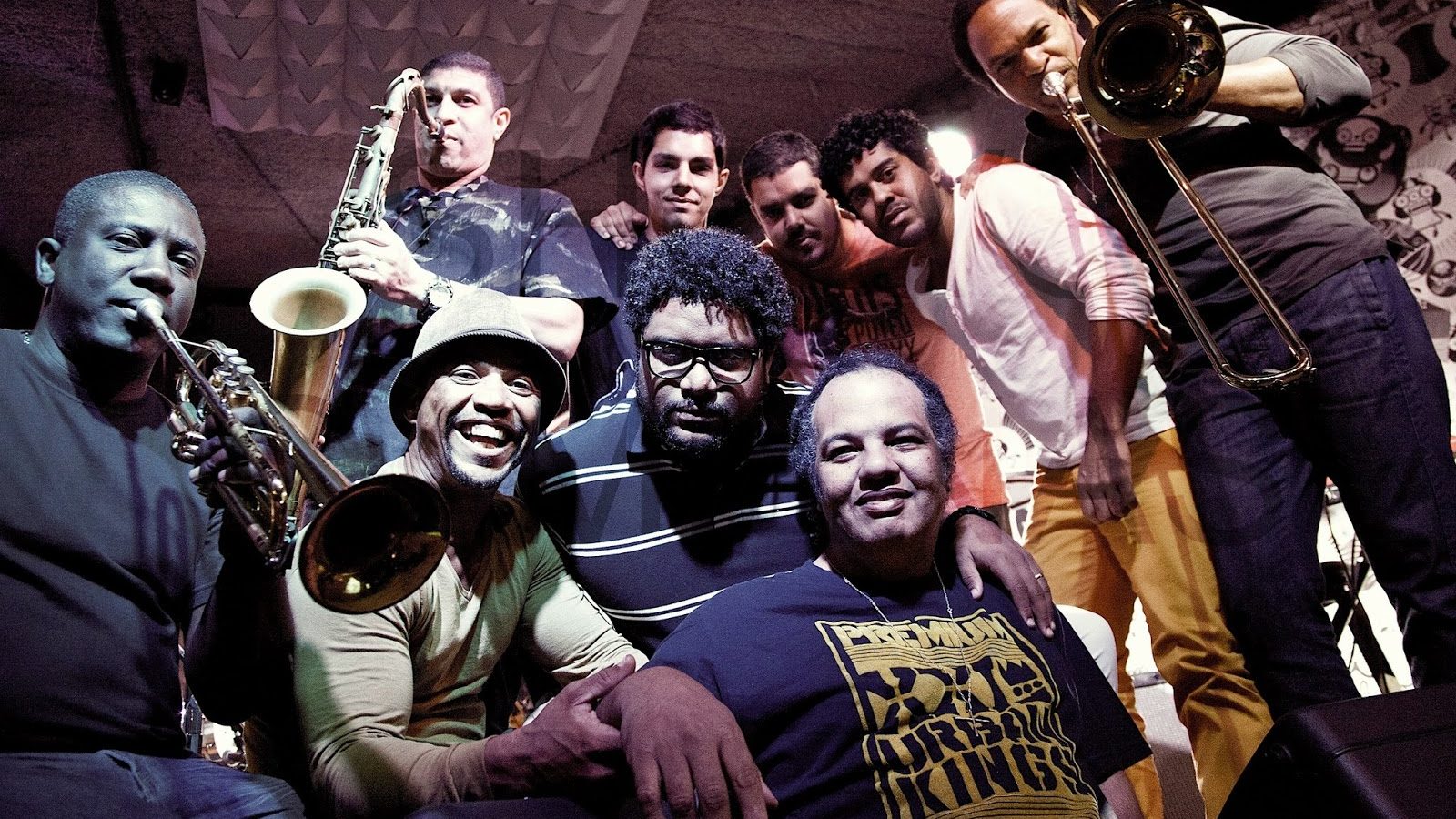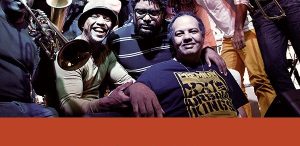This year marks 40 years since the formation of Banda Black Rio, the Brazilian outfit whose fusion of funk and samba saw them make an international impact alongside Brazilian artists like Tim Maia, Azymuth and Marcos Valle. They were integral to the Black Rio movement, a Brazilian civil rights movement which birthed a variety of excellent music, as well as forcing societal change. Today they continue the music of late founder Oberdan Magalhães, with his son William leading the band. Ahead of their show at Band on the Wall on 7th April, we caught up with William to discuss the development of Brazilian music, the early days of the group and the influence of the funk and samba fusion on other musical styles.
How has Brazilian music changed since the days when Banda Black Rio began? Has the sound that they and artists like Azymuth and Marcos Valle made popular internationally remained important to the music scene there?
The music in the 70’s was all influenced by the Black Rio movement, every artist in one way or another wanted to play funk and soul, and it had a great impact everywhere. Nowadays, Azymuth and Marcos Valle have become accepted by a small, intellectual portion of the public. During the military government the Black Rio movement were marginalised because of it strong sense of black consciousness, giving space for the tropicalia movement with a majority of white fans. Soon after this time, Brazilian music was forced by record companies and media to adopt a new model of imported music, like Rock. Later on the plan of the record companies was to decrease the quality of the music to different mediocre styles until nowadays.
For those who don’t know, can you tell us who currently plays with Banda Black Rio and how they became members of the group?
I am the son of the founder [Oberdan Magalhães], and grew up listening to my father’s music and understanding it’s concept. The essence of the music style ‘Black Rio’ demands qualified musicians that play Brazilian music, samba, and 70’s funk, which is rare nowadays in Brazil. After a long time looking for the perfect musicians we got them. We can say we found the best of the Brazilian musicians for Banda Black Rio sound.
We’re approaching the 40th anniversary of the debut album Maria Fumaça, what can you tell us about the making of that album, and the importance of those songs to what the group is doing today?
Maria Fumaca album is insuperable, ‘cause it is the matrix of the samba-funk-style which Banda Black Rio created. It is still a unique piece of art that the band itself has not surpassed, but it has inspired models that have been followed to this today.
There’s a groovy track on the debut record called ‘Mr. Funky Samba’. Do you think ‘Funky Samba’ is an accurate description of the Banda Black Rio sound, and who do you think was responsible for first fusing the styles of Funk and Samba music?
My father was the responsible for it. He had the whole and completed idea, even before Black Rio was created. My father was a researcher of this sound style, he was real musical alchemist.
Can you tell us about Movimento Black Rio, and the importance of the cultural change that was brought about as a result of that movement?
The movement brought great artists such as Cassiano, Carlos Dafe, and Elza Soares to wider attention. Those artists have strongly influenced the new generation.
How do you plan to spend the rest of 2016, will you be working on any new recordings in addition to playing live?
Yes, we plan to bring a celebration album this year and launch it internationally, once labels open for possibilities.



